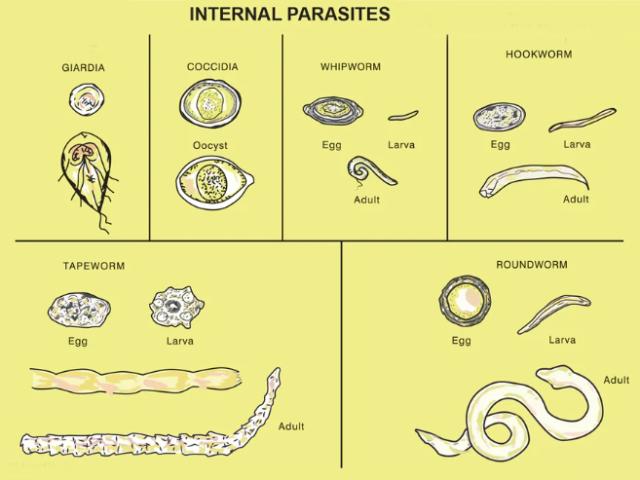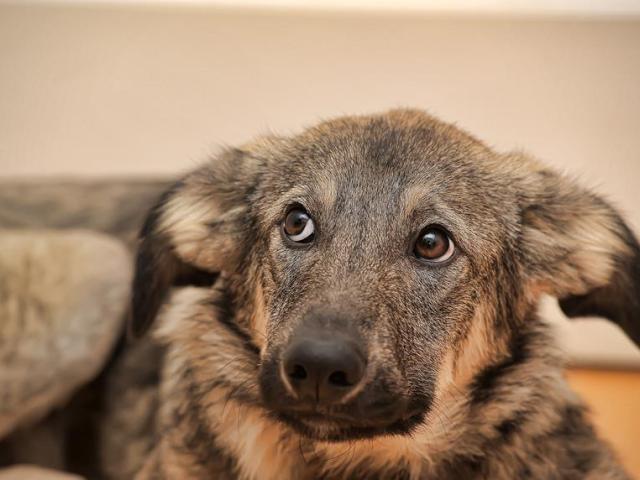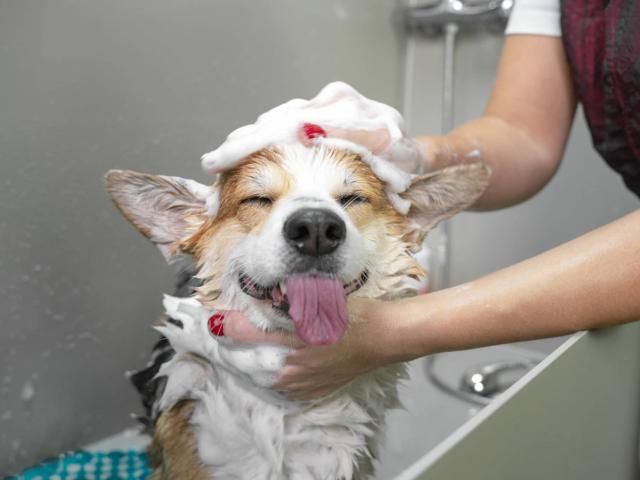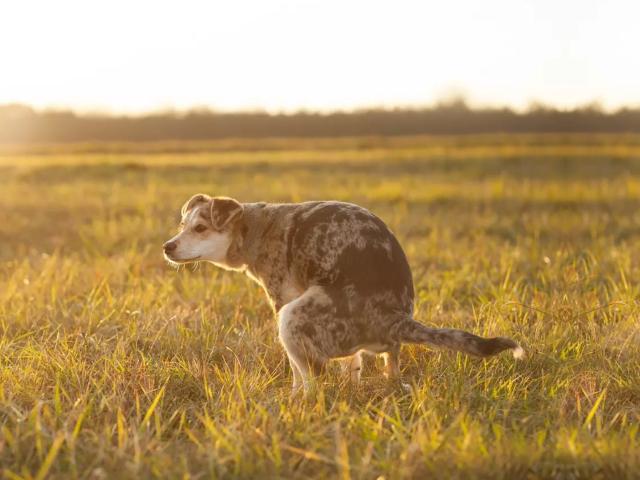If your dog has diarrhoea, most of the time, it is a temporary and nothing to worry about. Our dogs also have a sensitive digestive system that is prone to disorders. The cause can be due to diet, parasites or viruses, and in order to find out it is important to understand the behaviour and needs of your dog in order to keep him healthy. A dog that has diarrhoea may have simply eaten (or drunk) an unsuitable food or suffer from a more serious illness. So be on the lookout and seek a vet's opinion if it doesn't improve, and ensure you give your dog plenty of water, even more so in hot weather.
Symptoms of diarrhoea in dogs
The symptoms can be mild...
In these cases, your dog will not suffer strictly speaking, his stools will simply be very soft, even liquid, and frequent. If it is mild diarrhoea, your dog should not have other symptoms.
... Or more severe
If you notice that in addition to the appearance of his stools and his tendency to defecate a lot, your dog also shows signs of depression, lethargy or a painful stomach, or even that he is panting or drinking more, then this may be a sign that it is an infection or a stomach bug, for example.
Causes of diarrhoea in dogs
The digestive system of dogs is subject to variations, diseases and other trauma. The causes of diarrhoea in dogs can therefore have different origins.
Food
If the origin is dietary, this can be for different reasons:
- Your dog has consumed unsuitable food: in this case, it is possible that your dog has eaten (or drunk) expired food, oxidized dry food for example, or milk when he is not used to drinking it. The food has simply been poorly digested, nothing to worry about.
- Your dog has had a change of diet that is too radical for his stomach: if you have recently changed your dog's diet, for example by opting for food that is very different in terms of composition, a homemade diet, a cake for your dog's birthday, or tinned food instead of dry dog food, it is possible that the dietary transition has not gone well.
- Your dog has eaten a food that is difficult to digest: diarrhoea in dogs is sometimes caused by the ingestion of food that the animal has difficulty digesting. This could for example be undercooked cereals or vegetables that you have added to his food, but that your dog does not tolerate well. Also be careful with lactose-based products.
- Your dog is fed a poor quality diet: pay close attention to the quality of your four-legged friend's food. A poor quality diet, too rich in carbohydrates or fats, can cause digestive problems, including diarrhoea.
- Your dog has eaten an allergenic food: dogs are also affected by allergies. These then cause diarrhoea, vomiting, etc.
Intestinal parasites

In addition to food, intestinal parasites are also the cause of diarrhoea in dogs. They are of different types: worms or protozoan parasites such as Coccidia and Giardia. Many dogs eat poo and can easily catch these parasites, amongst other things. This is why deworming your dog regularly is essential.
Bacterial infections
The digestive system of dogs, like that of humans, naturally contains bacteria, both good and bad. As long as the intestinal balance is preserved, everything is fine, but a proliferation of bad bacteria promotes the appearance of digestive disorders leading to diarrhoea. Be very careful with salmonella and the Escherichia coli bacteria.
Viral infections
Beware of viral infections. Many of them are particularly dangerous, such as parvovirus or distemper. They cause diarrhoea that is sometimes bloody, and if not treated quickly, they threaten the life of the dog.
It is therefore vital to keep your dog up to date with his annual vaccinations against these illnesses.
Digestive tumours
Lymphomas, in particular, cause frequent and most often haemorrhagic diarrhoea.
Stress

Stress can also affect dogs. The transit disorders caused by stress and anxiety, including diarrhoea, are generally less violent than those caused by serious infections, but they should not be neglected.
Immune diseases
Some immune diseases cause diarrhoea via infiltration of cells, such as white blood cells.
Exocrine pancreatic insufficiency (EPI)
This pathology is characterized by the inability to produce sufficient pancreatic enzymes needed to digest fats, carbohydrates, and proteins. The dog is hungry and eats more than before, but still loses weight and suffers from frequent, yellowish and very liquid diarrhoea.
Extra-digestive causes
Some diseases, such as renal failure, peritonitis or liver failure, promote the appearance of diarrhoea.
What to do
If your dog is up to date with his vaccinations and has been dewormed in the past 3 months, and if he doesn't show any other signs of being unwell, it is likely that the diarrhoea is temporary and will clear on its own in a couple of days. Ensure your dog has access to water at all times. If your dog is not vaccinated, shows other signs of illness or if the diarrhoea doesn't clear after a few days, we advise seeing a vet. See our tips in case your dog is afraid at the vet's.


